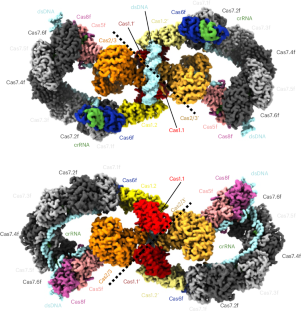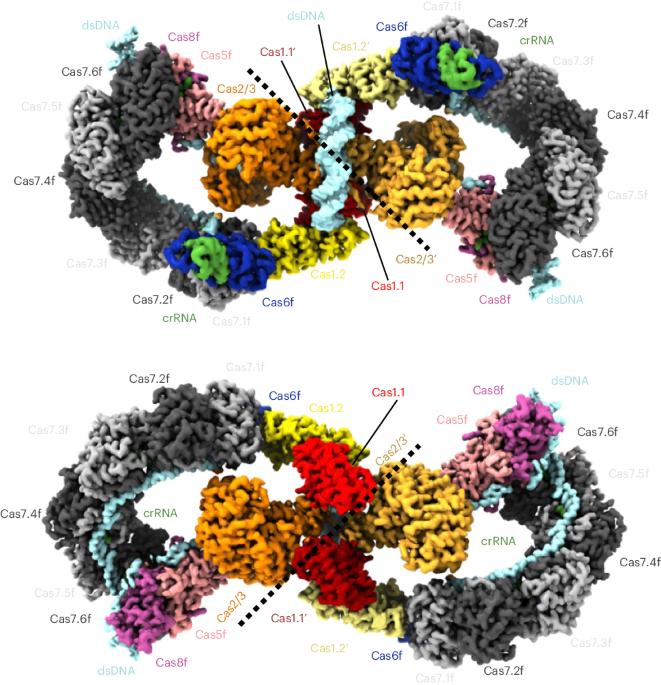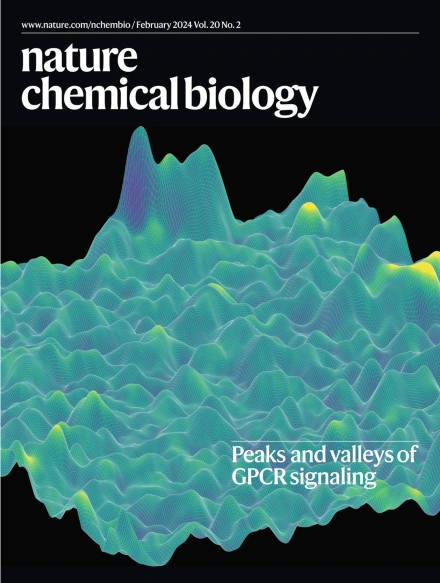An alternative mechanism for recruiting Cas2/3 in a phage-encoded CRISPR–Cas system
IF 12.9
1区 生物学
Q1 BIOCHEMISTRY & MOLECULAR BIOLOGY
引用次数: 0
Abstract
In type I-F CRISPR–Cas systems, Cas2/3 is typically recruited to the interference complex Cascade by Cas8f. We resolved the structures of the phage ICP1 CRISPR–Cas complexes and discovered a Cas2/3 recruitment mechanism distinct from that in other type I-F systems — recruitment by Cas1.


在噬菌体编码的 CRISPR-Cas 系统中招募 Cas2/3 的另一种机制
在I-F型CRISPR-Cas系统中,Cas2/3通常被Cas8f招募到干扰复合物级联中。我们解析了噬菌体 ICP1 CRISPR-Cas 复合物的结构,发现了一种不同于其他 I-F 型系统的 Cas2/3 招募机制--由 Cas1 招募。
本文章由计算机程序翻译,如有差异,请以英文原文为准。
求助全文
约1分钟内获得全文
求助全文
来源期刊

Nature chemical biology
生物-生化与分子生物学
CiteScore
23.90
自引率
1.40%
发文量
238
审稿时长
12 months
期刊介绍:
Nature Chemical Biology stands as an esteemed international monthly journal, offering a prominent platform for the chemical biology community to showcase top-tier original research and commentary. Operating at the crossroads of chemistry, biology, and related disciplines, chemical biology utilizes scientific ideas and approaches to comprehend and manipulate biological systems with molecular precision.
The journal embraces contributions from the growing community of chemical biologists, encompassing insights from chemists applying principles and tools to biological inquiries and biologists striving to comprehend and control molecular-level biological processes. We prioritize studies unveiling significant conceptual or practical advancements in areas where chemistry and biology intersect, emphasizing basic research, especially those reporting novel chemical or biological tools and offering profound molecular-level insights into underlying biological mechanisms.
Nature Chemical Biology also welcomes manuscripts describing applied molecular studies at the chemistry-biology interface due to the broad utility of chemical biology approaches in manipulating or engineering biological systems. Irrespective of scientific focus, we actively seek submissions that creatively blend chemistry and biology, particularly those providing substantial conceptual or methodological breakthroughs with the potential to open innovative research avenues. The journal maintains a robust and impartial review process, emphasizing thorough chemical and biological characterization.
 求助内容:
求助内容: 应助结果提醒方式:
应助结果提醒方式:


